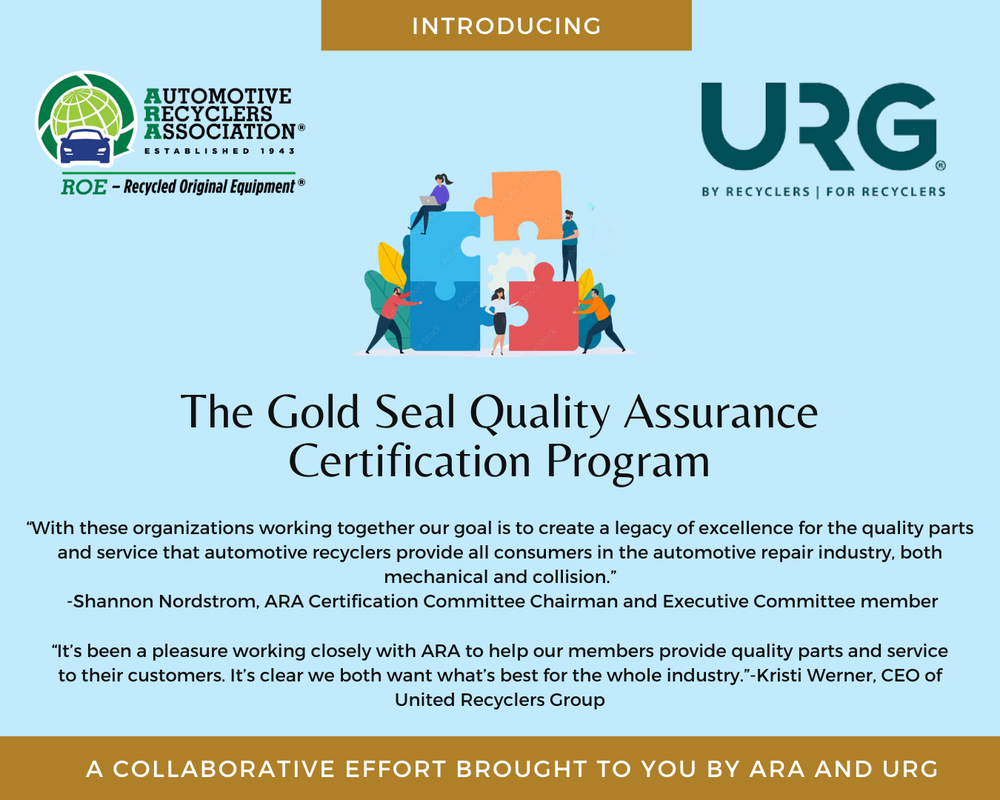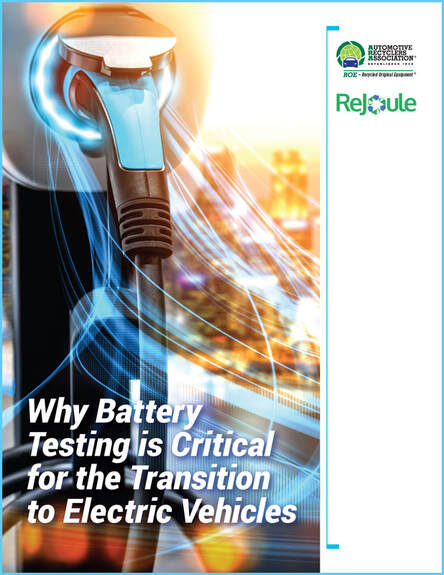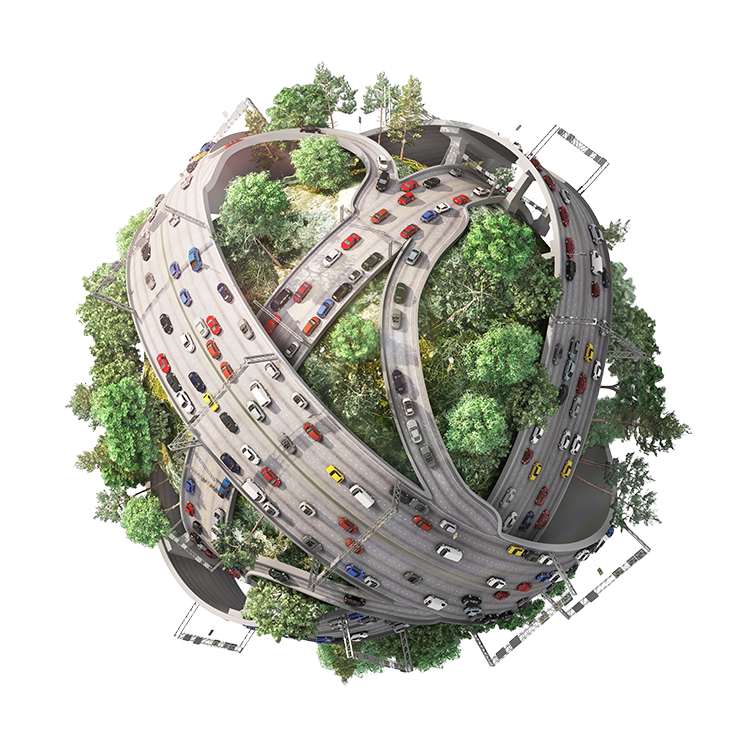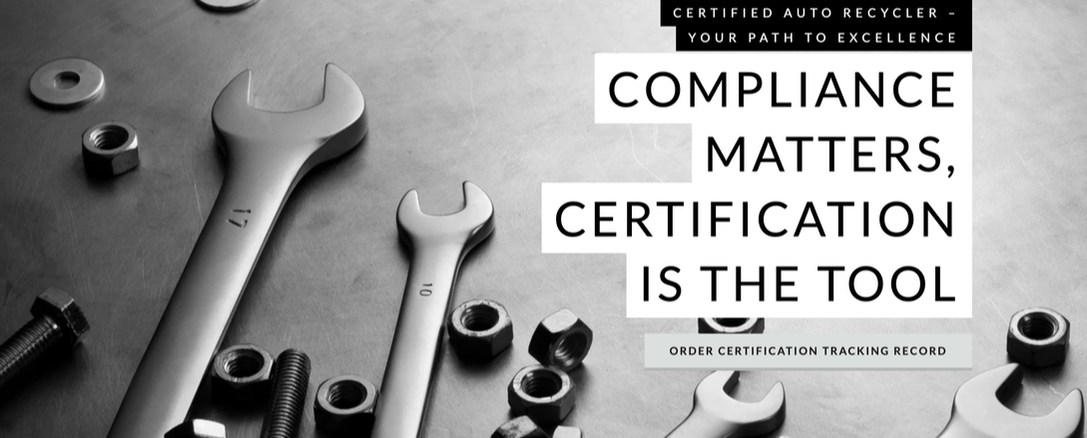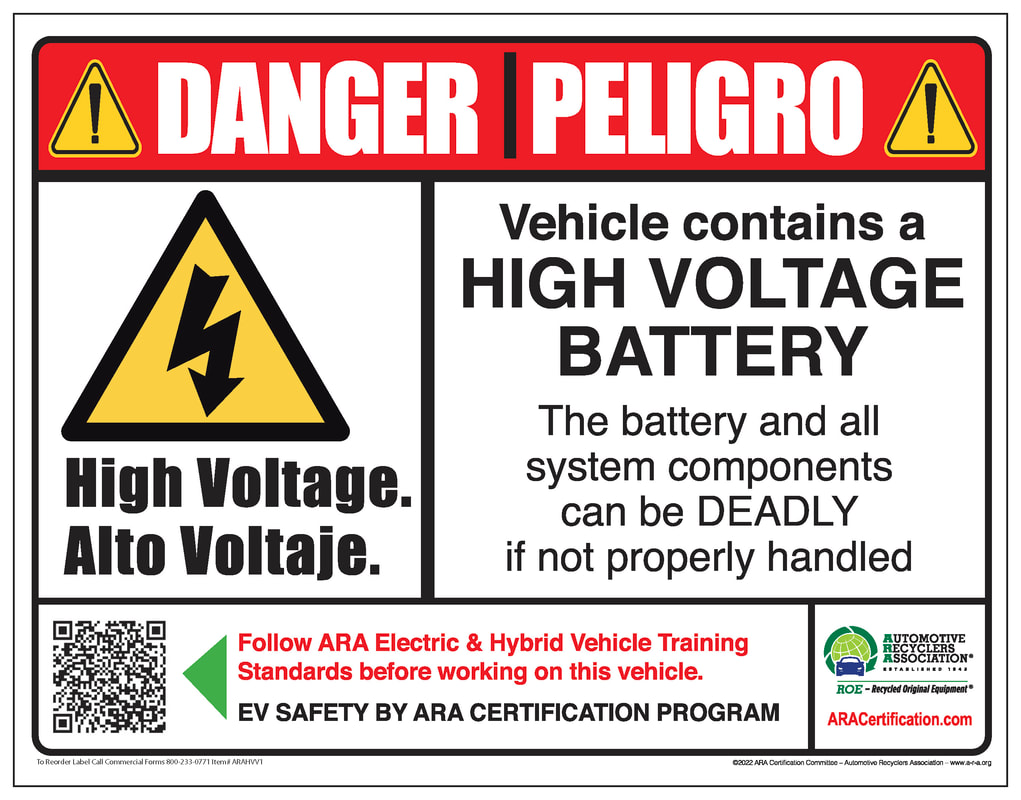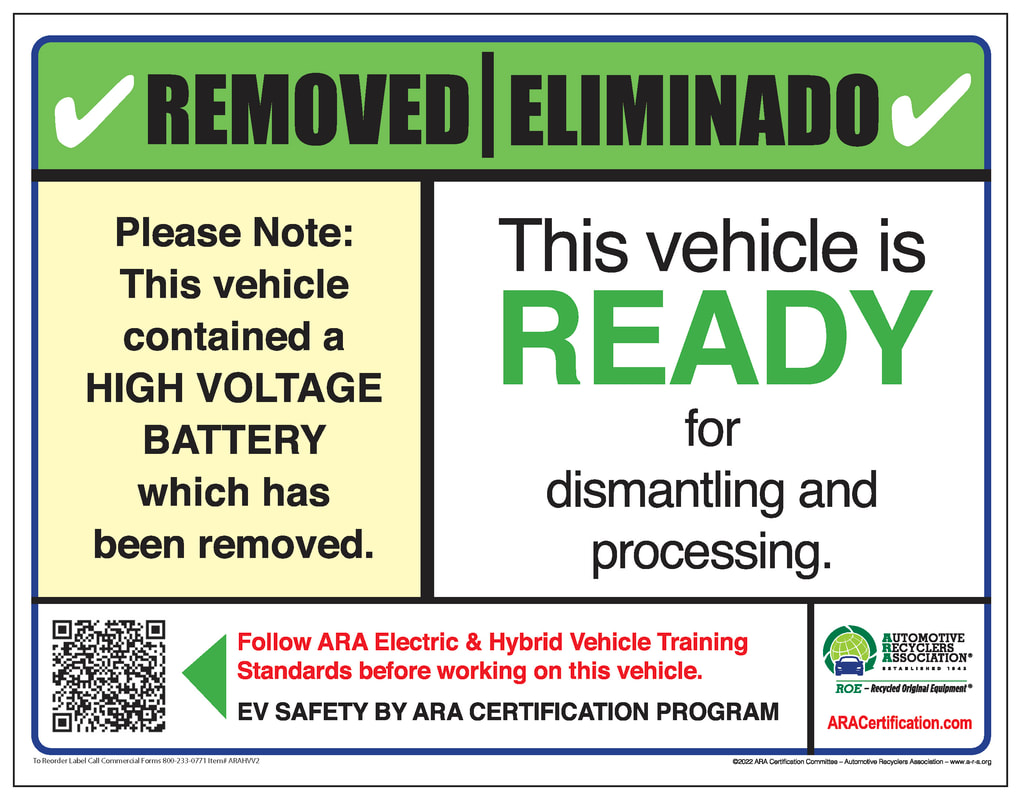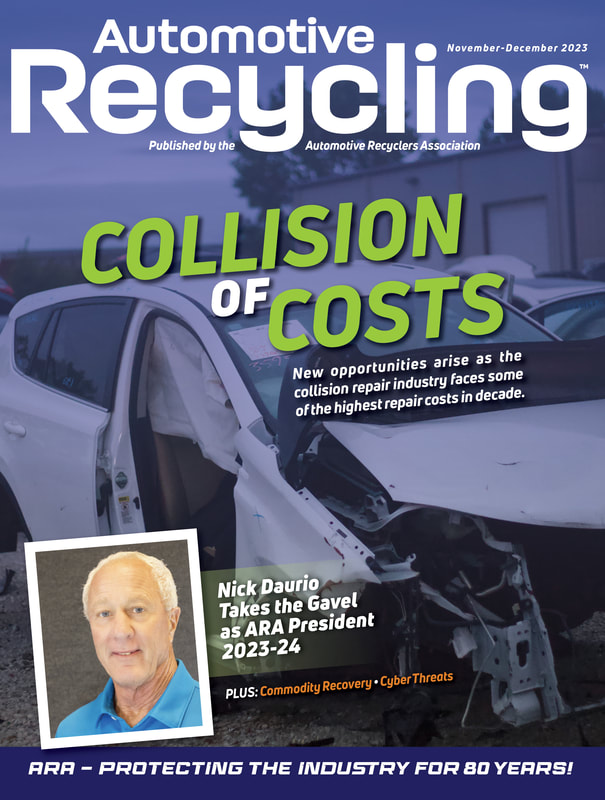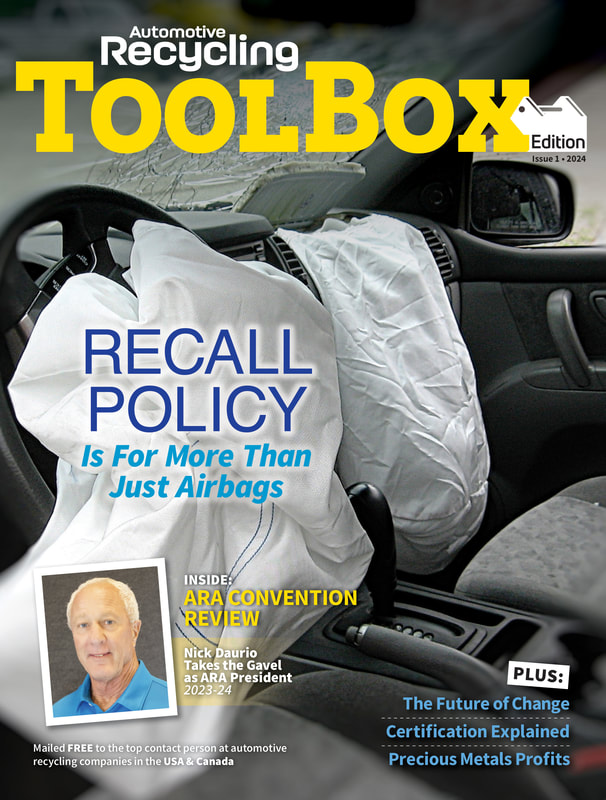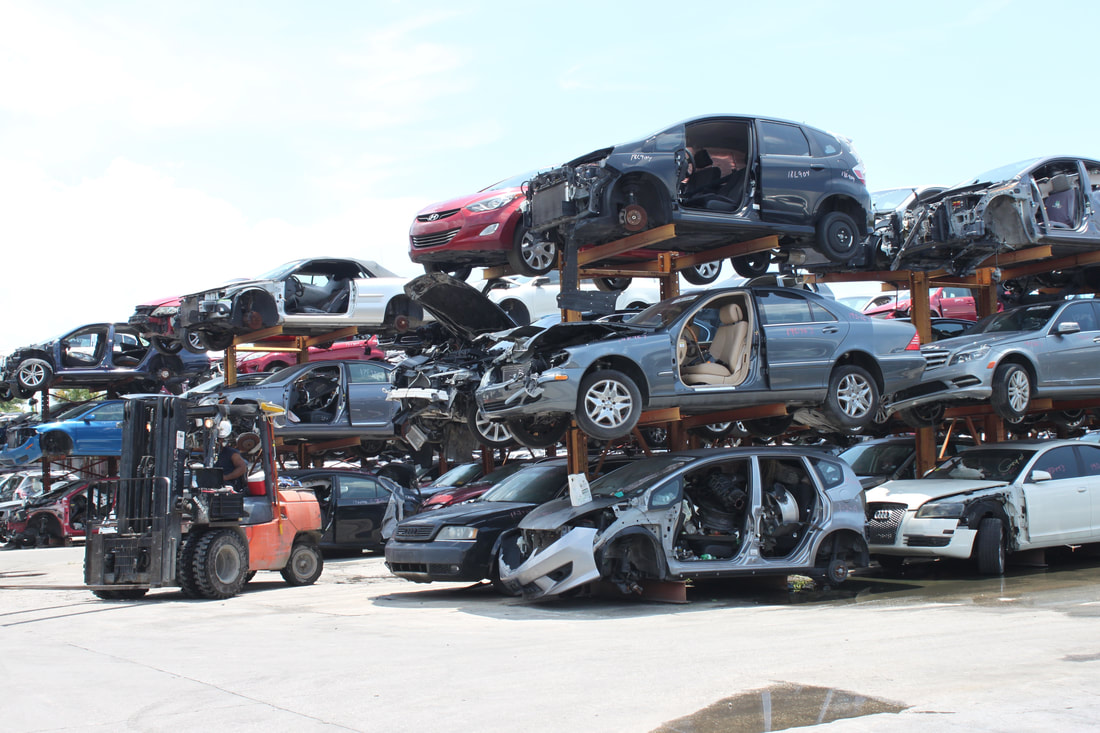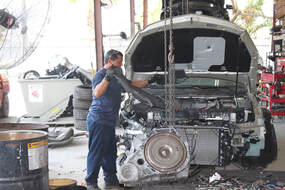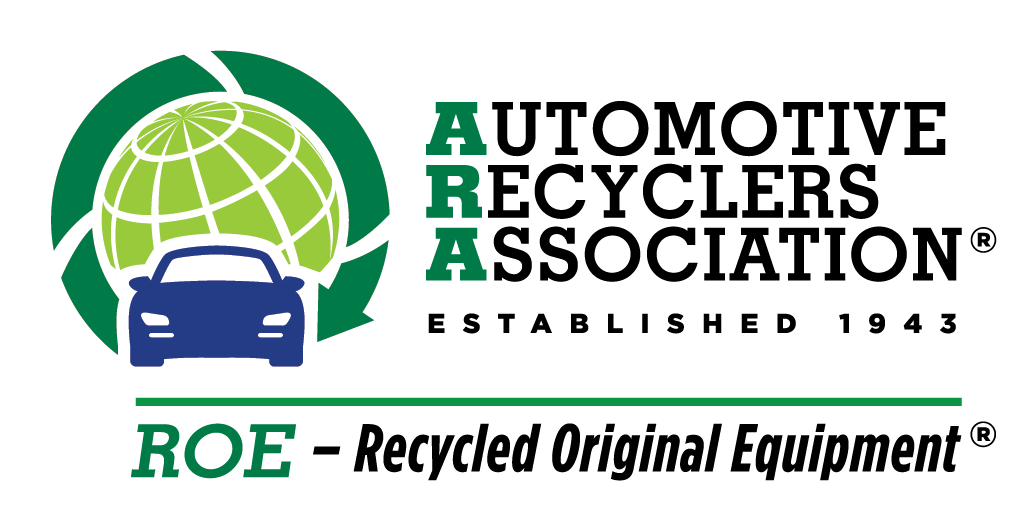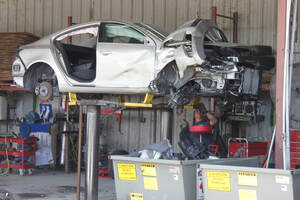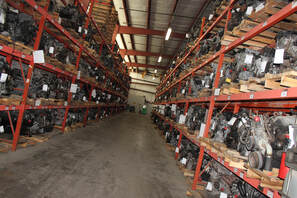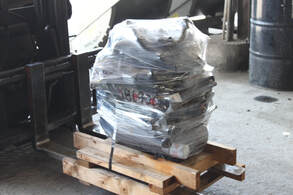IT'S YOUR LUCKY DAY!
REGISTRATION IS OPEN FOR ARA'S 81ST CONVENTION & EXPO!
Click Below to Register as Attendee or Exhibitor!
SEE BELOW FOR EARLY REGISTRATION OPPORTUNITY!
wait ... more luck IS coming your way!
Are You interested why ARA membership is important?
|
|
ARA and URG Revolutionize Professional Automotive Recycling Industry with Gold Seal Quality Assurance Certification
Read more about this groundbreaking collaboration aimed at redefining industry standards with the launch of the Gold Seal Quality Assurance Certification for professional automotive recyclers.
locate quality roe – recycled original equipment® auto parts now!
|
Download ARA's White Paper on EV Batteries
ARA is excited to announce the publication of a white paper in collaboration with ReJoule titled, “Why Battery Testing is Critical for the Transition to Electric Vehicles.” The paper explores how testing will be the key to ensuring a circular economy for electric vehicles by allowing automotive recyclers to put EV batteries to their highest and best use. |
|
NEW ARA MEMBER BENEFIT - GAIN ACCESS TO SHIFT RETIRED VEHICLE INVENTORY!
DETAILS HERE. WHAT IS SHIFT? SEE FAQs |
rETIRE YOUR VEHICLE.
|
|
Compliance Matters, Certification is the Tool
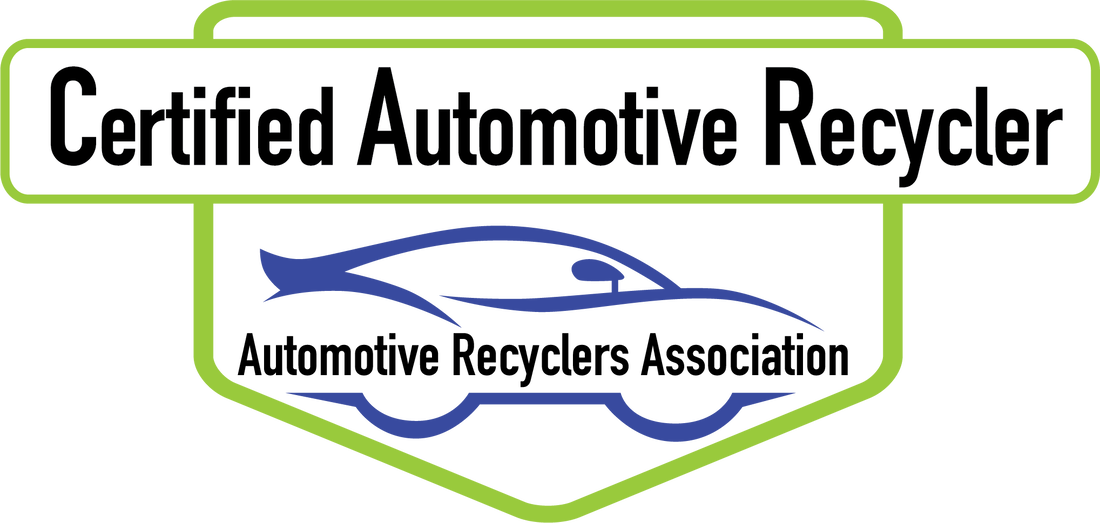
The professional automotive recycling industry places significant emphasis on the importance of certification, and for over 20 years the Certified Auto Recycler (CAR) Program has provided professional automotive recyclers with a set of standards for general business practices, environmental and safety issues.
|
The program is one of the cornerstones of ARA and industry partners recognize CAR certified automotive recyclers as market leaders.
CLICK HERE TO VISIT THE ARA CERTIFICATION WEBSITE, AND ENROLL TODAY! |
NewS from the certification committee
Keep your team safe when dismantling Electric Vehicles with the ARA CAR EV STICKERS.
Visit the CAR Website for more details!
Visit the CAR Website for more details!
Need help identifying recalls?
Log into the ARA Member-Only Area and search the NSVRP Open Safety Recall Portal. This is for ARA members.
|
why join ARA?
|
|
now selling 2024 advertising -
get positioned to profit!
Click covers below to DOWNLOAD 2024 media kit
See all your options!
Get When you Advertise, You'll Get ... Influence ~ Reach ~Solutions ~ Access!
Call Caryn Smith & Jay Mason at (239) 225-6137 or email [email protected]!
Check Out ARA's 2024 Media Kit!
VISIT AUTORECYCLINGNOW.COM
TO SEE THE PUBLICATIONS ONLINE!
Call Caryn Smith & Jay Mason at (239) 225-6137 or email [email protected]!
Check Out ARA's 2024 Media Kit!
VISIT AUTORECYCLINGNOW.COM
TO SEE THE PUBLICATIONS ONLINE!
What are roe® auto parts?

ROE – Recycled Original Equipment® auto parts are the very automotive parts manufactured by auto manufacturers with the exact "fit and finish" in their makes and models. When you need a repair on your car, whether it be mechanical or cosmetic, it makes SENSE, and saves you DOLLARS, to use recycled original equipment auto parts. #ask4ROE
ROE – Recycled Original Equipment® can include parts such as engines, transmissions, doors, switches, headlights, taillights, bumpers, and much more. There can be several hundred parts on each vehicle that can be recycled and reused. That keeps waste out of our landfills and prevents unnecessary reproduction within the industry. |
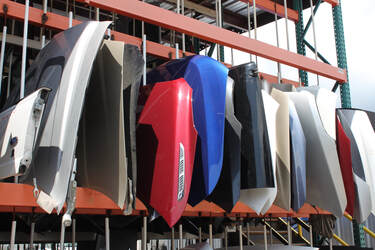
To ensure that recycled original equipment (OEM) auto parts meet customer expectations, many automotive recyclers employ multi-step quality control procedures. Sophisticated technology and inventory management platforms allow recyclers to maximize their inventories and provide efficient service to their customers all over the world.
|



